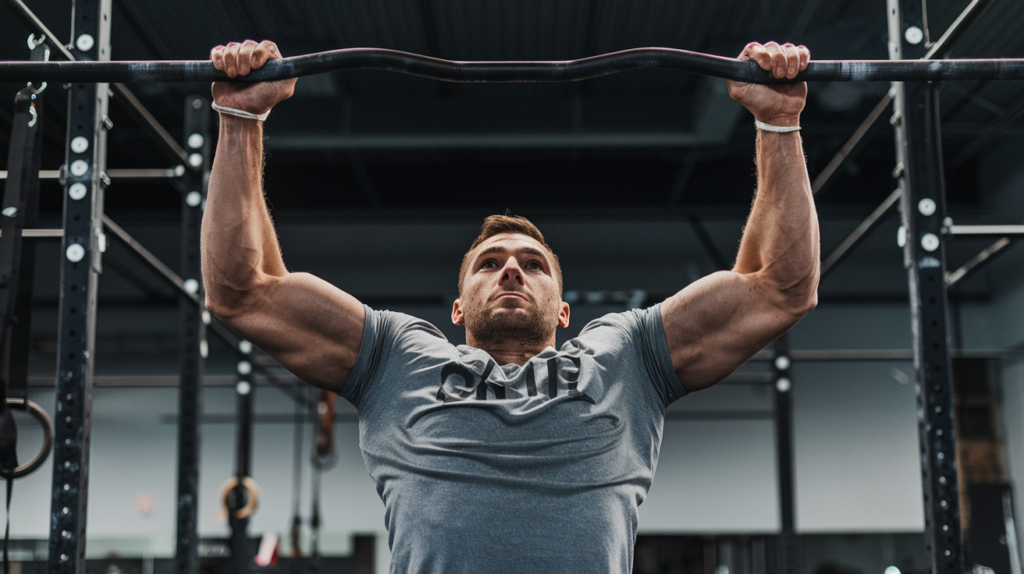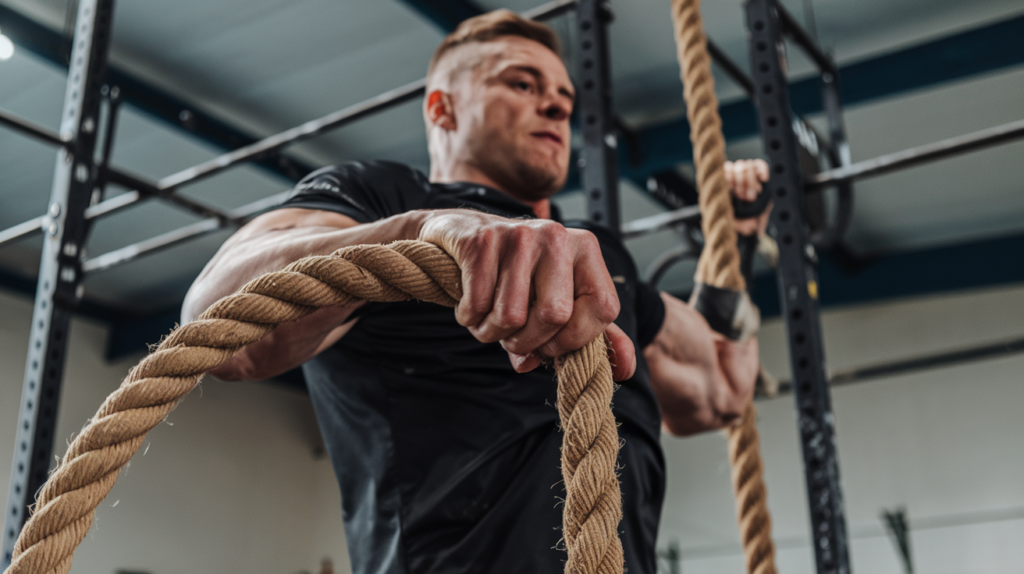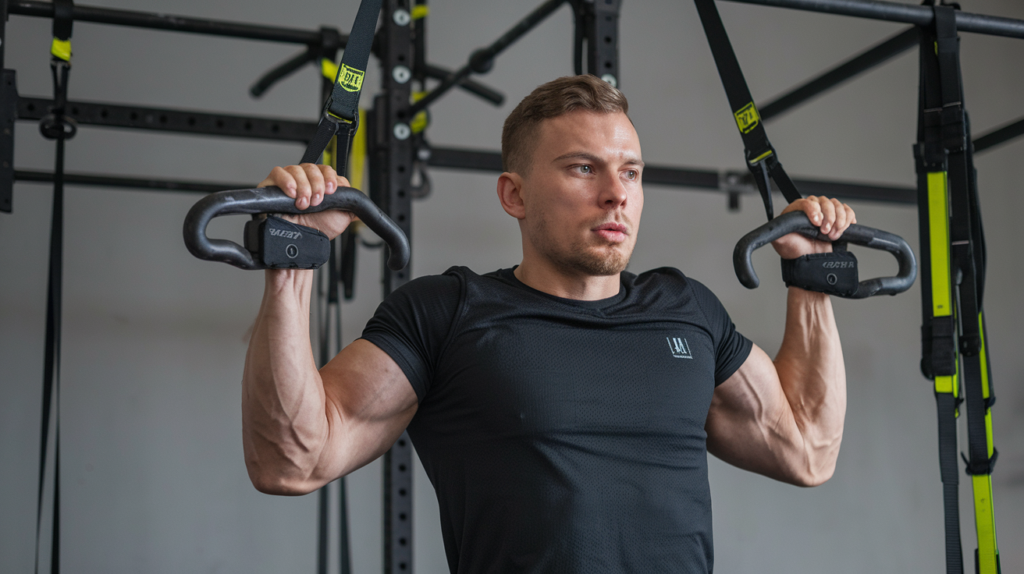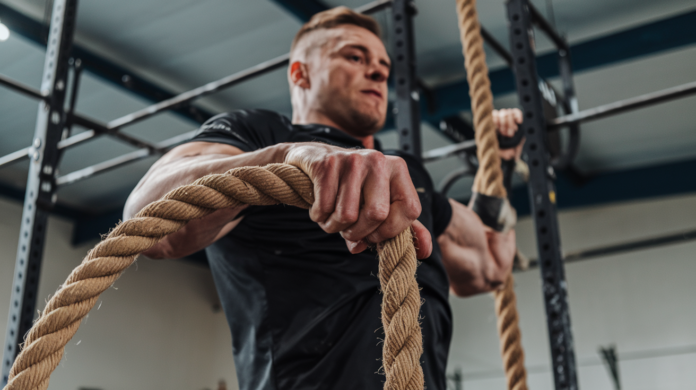The latissimus dorsi, or lats, are the key muscles responsible for giving your back its width and contributing to that desired V-shaped physique. Pull-ups are among the best exercises for developing these muscles, but the effectiveness of the exercise depends heavily on the grip you use. In this guide, we’ll explore the best pull up grips to target your lats effectively, how to perform them correctly, and tips for incorporating them into your workout routine for maximum lat engagement.
Why Focus on Lats During Pull-Ups?

Targeting your lats during pull-ups is crucial for several reasons:
Read more The Best Pull Up for Lats: How to Target Your Latissimus Dorsi
1. Increased Back Width
Strong lats contribute to a broader, more defined back, which is key to achieving a balanced and powerful upper body.
2. Improved Upper Body Strength
The lats are involved in various upper body movements, including pulling, lifting, and stabilizing the shoulders. Strengthening them through pull-ups can enhance your performance in other exercises and daily activities.
if you love travel
3. Enhanced Posture
Strong lats help maintain proper posture by supporting the spine and shoulders, reducing the risk of injury and promoting a more upright, confident stance.
4. Functional Strength
The lats play a significant role in functional movements, such as pulling and climbing. Building strong lats improves your ability to perform these activities with greater ease and efficiency.
The Best Pull-Up Grips for Targeting Lats

Different pull-up grips can shift the emphasis of the exercise to various muscles in your back, shoulders, and arms. Here are the most effective grips for targeting your lats:
1. Wide-Grip Overhand Pull-Ups
The wide-grip overhand pull-up is widely regarded as the best variation for targeting the lats. The wide hand placement minimizes the involvement of the biceps and shifts the load onto the lats, making it ideal for back development.
- Muscles Targeted: Latissimus dorsi, teres major, trapezius, rhomboids.
- How to Perform:
- Grip the bar wider than shoulder-width apart with your palms facing away from you.
- Engage your core and pull your chest towards the bar, focusing on squeezing your lats at the top of the movement.
- Lower yourself back down in a controlled manner, fully extending your arms at the bottom.
- Aim for 3-4 sets of 6-8 reps.
2. Neutral-Grip Pull-Ups
Neutral-grip pull-ups, also known as hammer grip pull-ups, are another excellent option for targeting the lats. This grip is easier on the shoulders and wrists, allowing for a more natural pulling motion that still effectively engages the lats.
- Muscles Targeted: Latissimus dorsi, trapezius, rhomboids, biceps.
- How to Perform:
- Grip the bar with your palms facing each other, using handles or a bar that allows for a neutral grip.
- Engage your core and pull your chest towards the bar, keeping your elbows close to your body.
- Lower yourself back down in a controlled manner, fully extending your arms at the bottom.
- Aim for 3-4 sets of 8-10 reps.
3. Close-Grip Overhand Pull-Ups
Close-grip overhand pull-ups target the lower lats and inner back, while still engaging the upper back muscles. This variation allows for a slightly different angle of pull, which can help further develop the lats.
- Muscles Targeted: Lower latissimus dorsi, rhomboids, biceps.
- How to Perform:
- Grip the bar with your hands positioned close together, about shoulder-width apart.
- Pull yourself up towards the bar, focusing on bringing your chest as close to the bar as possible.
- Lower yourself slowly back down, ensuring full extension at the bottom.
- Aim for 3-4 sets of 8-10 reps.
4. Wide-Grip Lat Pull-Ups
Wide-grip lat pull-ups are specifically designed to target the lats by emphasizing a wide, outward flare of the elbows during the pull. This motion increases the stretch and engagement of the lats.
- Muscles Targeted: Latissimus dorsi, teres major, rhomboids, rear deltoids.
- How to Perform:
- Grip the bar wide, with your palms facing away from you.
- As you pull up, flare your elbows out and focus on pulling your body up with your lats, rather than your arms.
- Lower yourself back down slowly, keeping tension on the lats throughout the movement.
- Aim for 3-4 sets of 6-8 reps.
5. Archer Pull-Ups
Archer pull-ups allow you to focus on one lat at a time, making them an excellent choice for building significant lat strength and control. This unilateral approach helps ensure balanced development on both sides of your back.
- Muscles Targeted: Latissimus dorsi, teres major, trapezius, rhomboids.
- How to Perform:
- Start in a standard pull-up position with a slightly wider than shoulder-width grip.
- As you pull yourself up, shift your weight to one side, extending the opposite arm straight out.
- Alternate sides with each rep, focusing on maintaining control and stability.
- Aim for 3-4 sets of 4-6 reps per side.
6. Lat-Focused Pull-Ups
Lat-focused pull-ups involve using a mind-muscle connection to consciously engage your lats throughout the movement. This technique helps maximize lat activation and growth.
- Muscles Targeted: Latissimus dorsi, teres major, rhomboids, rear deltoids.
- How to Perform:
- Grip the bar with a slightly wider than shoulder-width overhand grip.
- As you pull yourself up, focus on pulling with your lats rather than your arms, imagining that your elbows are being pulled down towards your hips.
- Lower yourself back down in a controlled manner, keeping tension in your lats throughout the movement.
- Aim for 3-4 sets of 6-8 reps.
Tips for Maximizing Lat Development with Pull-Ups

To ensure you’re getting the most out of these pull-up variations and effectively targeting your lats, consider the following tips:
1. Focus on Form and Lat Engagement
Proper form is crucial for targeting the lats effectively. Focus on engaging your lats throughout the movement, avoiding excessive swinging or relying on momentum.
2. Use Progressive Overload
To continue building lat strength, gradually increase the difficulty of your pull-up variations. This can be done by adding weight, increasing the number of reps, or progressing to more advanced variations.
3. Incorporate Other Lat Exercises
While pull-ups are highly effective for lat development, combining them with other lat-focused exercises, such as lat pulldowns, rows, and straight-arm pulldowns, can provide a well-rounded back workout.
4. Mind-Muscle Connection
Developing a strong mind-muscle connection can help you better engage your lats during pull-ups. Focus on the contraction of your lats throughout the movement to maximize muscle activation.
Incorporating Lat-Focused Pull-Ups into Your Routine

To effectively integrate these lat-focused pull-up variations into your back training, consider the following approaches:
1. As a Primary Back Exercise
Given their effectiveness, lat-focused pull-up variations can serve as a primary exercise in your back workouts. Perform them early in your routine when your muscles are fresh to maximize strength gains.
2. In a Superset or Circuit
Combine pull-ups with other back exercises, such as bent-over rows, face pulls, or deadlifts, in a superset or circuit to increase the intensity and challenge your endurance.
3. As Part of a Pulling Day
Incorporate lat-focused pull-ups into your pulling day routine, where you focus on exercises that engage the back, shoulders, and biceps. Pair them with exercises like barbell rows and face pulls for a comprehensive upper body workout.
Conclusion
Choosing the right grip for pull-ups is essential for effectively targeting your lats and building a strong, muscular back. By incorporating the best pull-up grips for lat engagement into your routine, you can maximize your gains and achieve the well-developed back you’re aiming for. Remember to focus on proper form, controlled movements, and progressive overload to continue making progress in your strength training journey.
With dedication and the right approach, these pull-up grips can help you build the lats you’ve always wanted, enhancing both your performance and physique






